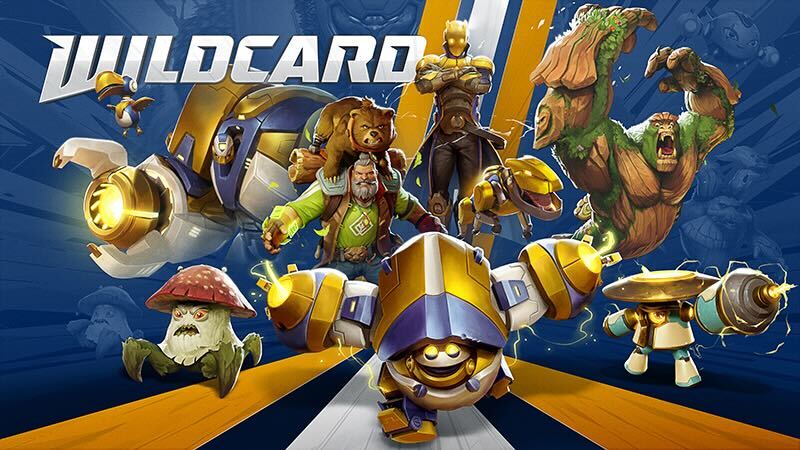
A few months ago we covered Wildcard getting its hands dirty by being playable at Dreamhack Atlanta 2023.
Now that the dust has settled and the team has returned from a successful showing, we sat down with Wildcard creator Paul Bettner to ask him some questions about their ambitious new title! Get our full interview below:
Niche Gamer: Hi Paul, thanks for taking the time to sit down with us. Tell us more about Wildcard. What is your core focus for Wildcard while continuing to develop the game? Has your vision/overall goal for Wildcard evolved over the course of the project? How and why?
Paul Bettner: Six years ago, we had this vision from the beginning of creating a connected, empowered community that didn’t just include the competitors, but also included the fans, the spectators, and the whole audience. This was the beginning of our journey in developing Wildcard.
We also have a very specific focus with Wildcard on not just building a competitive game but building an ecosystem that includes content creators and competitors and tries to elevate the sport of Wildcard to this next level, where there’s just a thriving ecosystem.
NG: For those who don’t know, you’re quite successful in the industry from being one of the minds behind the insanely popular Words with Friends mobile game. How has your background in the gaming industry helped/ guided you in the process of creating Wildcard?
PB: I’ve been making games for many years now. I started as a kid. As we talk about some of the stuff we’re working on with Wildcard today, probably the common thread is going to be an obsession with working on products and games that connect people.
When I was first getting started, at 17 or 18, I started what was called a bulletin board service, a BBS. Pre-internet. It became one of South Florida’s most popular BBSes. I was developing software for it and running games on it.
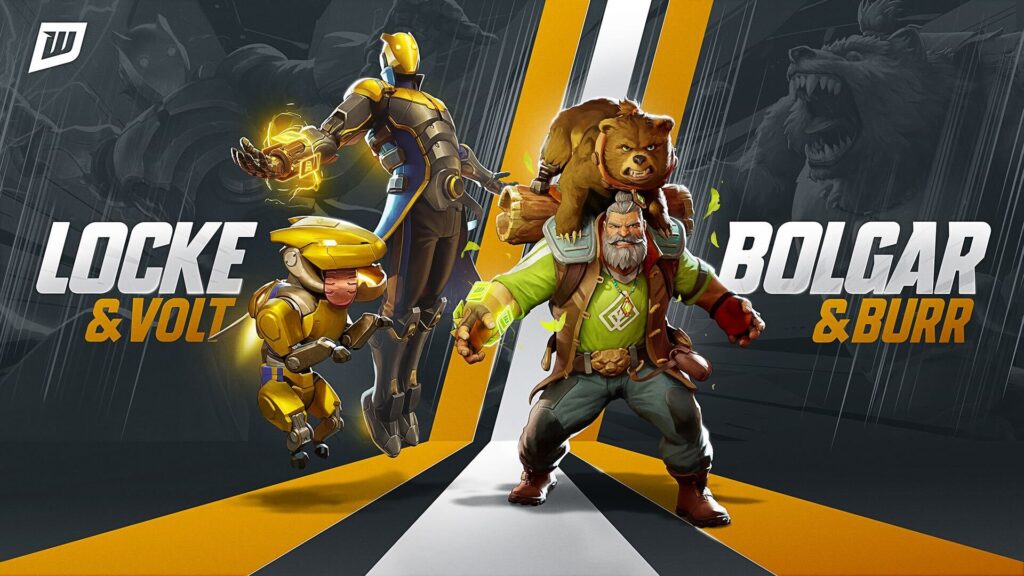
I’ve been obsessed since then with the opportunity for games and entertainment to connect people, which leads us to what we do today, from Age of Empires to Words With Friends–especially Words With Friends. That was quite a journey.
It became one of the top mobile games, played by half a billion people. Since then–going back even before that, with Age of Empires and the games we worked on at Microsoft, we were still being drawn to these opportunities to create games for more people.
This is something I’ve been inspired by, some of my favorite companies like Nintendo. They obsess over the customers they have, but they also obsess over the customers they don’t have. For me, after 20 years of my career, I’ve wanted to find out who are the people who don’t play our games yet, and why. How can we reach them?
Our related obsession at Wildcard is to make video games more accessible, more universal, and more inclusive – and new tech and platforms are often the most fertile ground to do that. In this case, by pushing the boundaries of how a video game can function as a platform for content creators (i.e. streamers) and their fans, we enable Wildcard to reach an even broader audience of not just competitors but also spectators, viewers, and fans.
Every time we make a game for a new platform, like when we made a game for the iPhone, we tend to bring all the things we loved and applied to the games we worked on before. We want games that connect people and make people happy. But there’s always something new that’s unique about that platform and that audience that I’ve never encountered before.
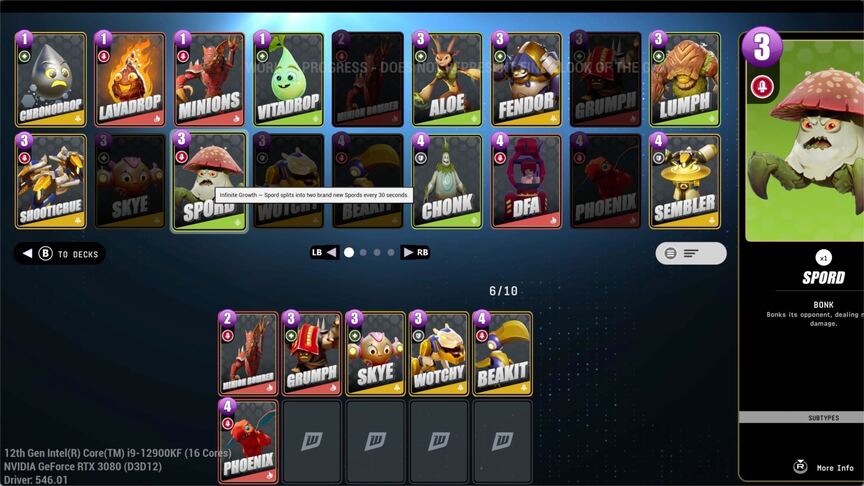
NG: How has developing Wildcard been different than the other games you have worked on? Is it more difficult or easier?
PB: Wildcard is a hybrid genre game, so it’s a brand-new thing. It’s not like we’re just fast following some existing game, just making a traditional mobile or shooter or something like that. We’re blending multiple genres and we’re building a brand new IP. So in both those cases, we have to think deeply about, wait, who is our core audience, who are we aiming for?
Wildcard has the action gameplay of a multiplayer online battle arena (MOBA) game or an arena game like Rocket League. Our vision from the beginning of this game has been to try to bring those two genres together successfully. And it’s been challenging, like going back to our work on Age of Empires. Finding the formula for fun in this game has been a journey. And it’s been part of why it’s taken us several years to get to the point where we feel confident about the game.
NG: What sets Wildcard apart from other arena or team-based shooters that we’ve seen in the esports realm, such as Overwatch or Valorant?
PB: Wildcard is a competitive multiplayer hybrid 3rd-person action-strategy arena game, with collectible card elements, combining the strategy of CCGs with the adrenaline rush of MOBAs and adding in our ‘special sauce’ – inviting fans to join live in the stands inside the game’s arenas and stadiums. Wildcard aims to create the thrill and energy that is found at live sporting events.
Players and fans from around the world meet inside the universe of Wildcard and experience the strategy and spectacle together! Wildcard is designed to be engaging for more than just those actively playing – it is designed to bring spectators right into the game, making it the ultimate gaming spectator sport. The audience is an active part of the game, directly interacting and connecting with players/content creators in real time.
NG: There’s quite a bit of skepticism regarding NFTs and digital ownership, especially when it comes to gaming spaces. How would you encourage people to give Wildcard a shot if they have a prejudice? With Wildcard using blockchain technologies, how can you reassure gamers that this is a platform they can get behind? Can you ensure it’s longevity and stability?
PB: This company differs from all the other blockchain game companies I’ve seen because it has made a playable game before talking about its blockchain technology. And the team was working on this game for five years before exploring blockchain elements even started. As an engineer, understanding what a blockchain was, and what a smart contract was, it was like this nuclear bomb went off in my head; This is the thing we’ve been looking for.
For Wildcard, this is the technology that we can use to build that connected community. In my mind, Web3 is not about coins and tokens and finance and other things. For gaming, and I think for interactive entertainment like this, it is about the ability to build a protocol that connects various aspects of the community into one experience. I still am very skeptical of what’s happening in Web3 on a general basis.
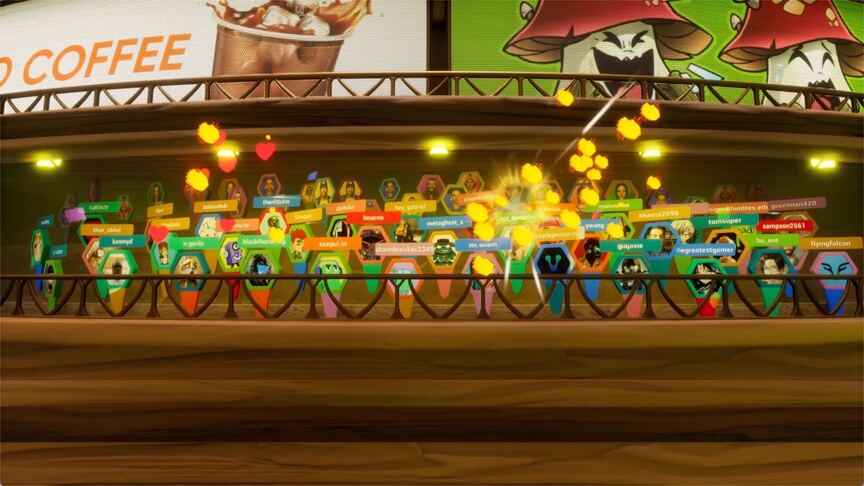
There are a lot of problems with it. But Katy and I had this vision to build a game that was as much fun to watch as it was to play. It could bring together competitors and their audiences in a new way that hadn’t been done before. This is inspired by things you’re all familiar with: what’s been happening on Twitch and YouTube and streaming platforms. We started to see this happen with gamers and our audience six years ago. In some cases, we had people who were watching people play our games more than they played themselves. This was something new.
One of the specific experiences we’re able to bring to life because of Web3, which we did at our first exhibition last February, Melee on the Meteor, is a live giveaway between the person who’s playing and the audience. We can have that moment that we’re familiar with from professional sports, where a baseball player might sign a ball and throw it into the stands, and then some fan catches it. We’re able to bring that experience to life in Wildcard.
Web3 platforms present a tremendous opportunity to build entertainment that can include, empower, and onboard millions of new players. Despite this opportunity, the current focus of Web3 game development tends to be on finance over fun, economy over engagement, and currency over community. With Wildcard, we’re focused on fun first, building a next-generation ‘spectator sport’ to welcome the entire community of competitors, collectors, sponsors, and fans to play together.
I’m hoping that with Wildcard, we can not just begin to get gamers excited, but even other game developers, because if you put aside the ways that Web3 has been used in the short term, and you look at it as a technology that can connect your players in new ways, especially in your community, there are fundamental ways that Web3 will make gaming better.
I think the skepticism that gamers have, and even game developers, is fully legitimate. The only way that we want to try to convince players that this technology can be used for good and can be used to make games better, is by showing them. That’s what we are doing with Wildcard.
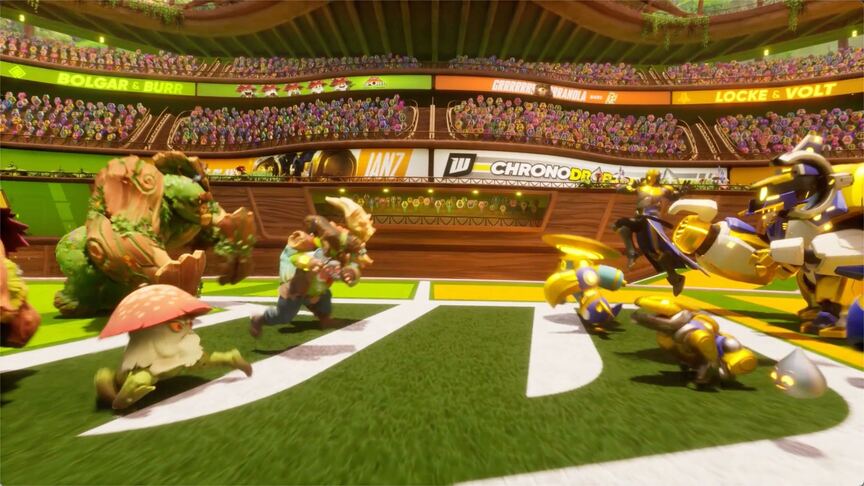
NG: Wildcard visually reminds me of Battleborn. Were there any inspirations from other previous or current MOBA titles leading into the character or arena creation process?
PB: We draw inspiration from our previous work on Age of Empires, building a vibrant, beautiful, broadly appealing IP with elements of stylization and realism blended appealingly. The team also draws inspiration from their past experiences working on other massive hit franchises at places like Blizzard and BioWare.
NG: Since we kicked this interview header off by mentioning it, what was your favorite part of attending Dreamhack Atlanta?
PB: Hundreds of gamers got to play Wildcard for the first time! Not since we debuted Age of Empires 2 at E3 1998 have I witnessed such an incredibly positive hands-on reception to a new game. So many gamers having incredibly positive reactions to Wildcard and choosing to spend their time with us during DreamHack (some for hours throughout the weekend and bringing all their friends!) shows us Wildcard is something really special!
NG: Finally, what are you most looking forward to for Wildcard in 2024?
PB: I’m most looking forward to this game we’ve been pouring our hearts into for several years, finally reaching its early access release and hopefully welcoming millions of gamers into the universe of Wildcard for the very first time!